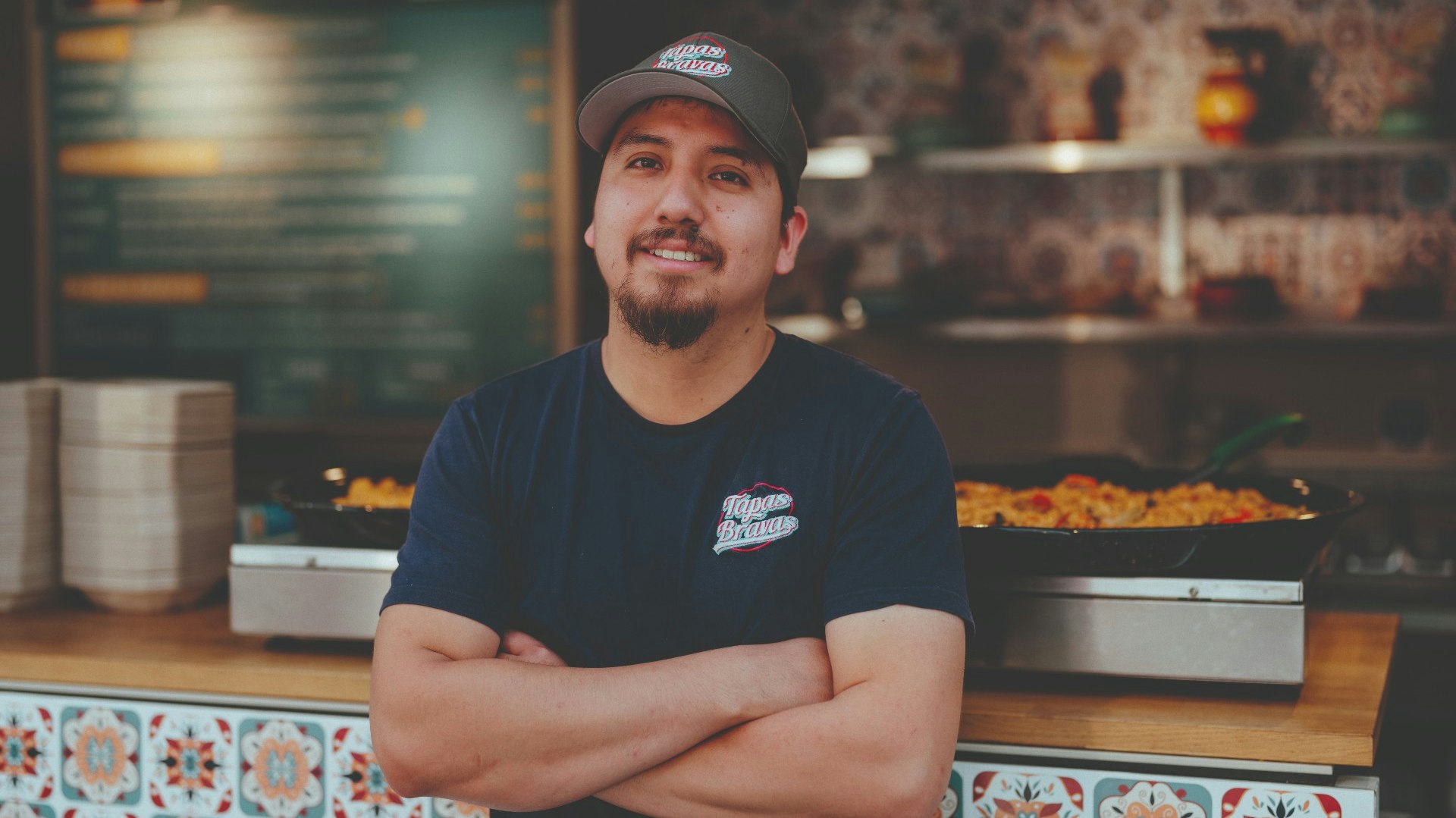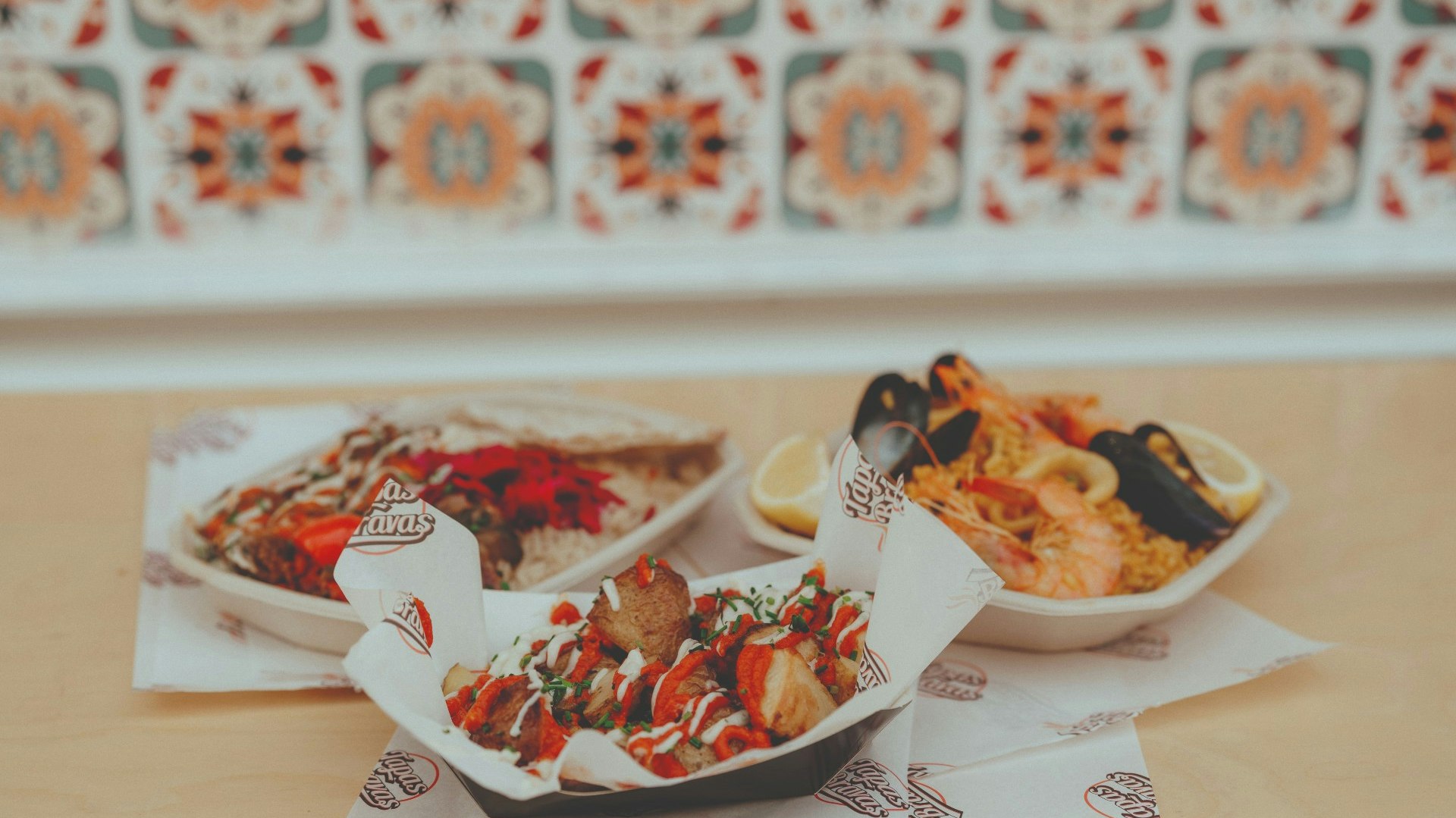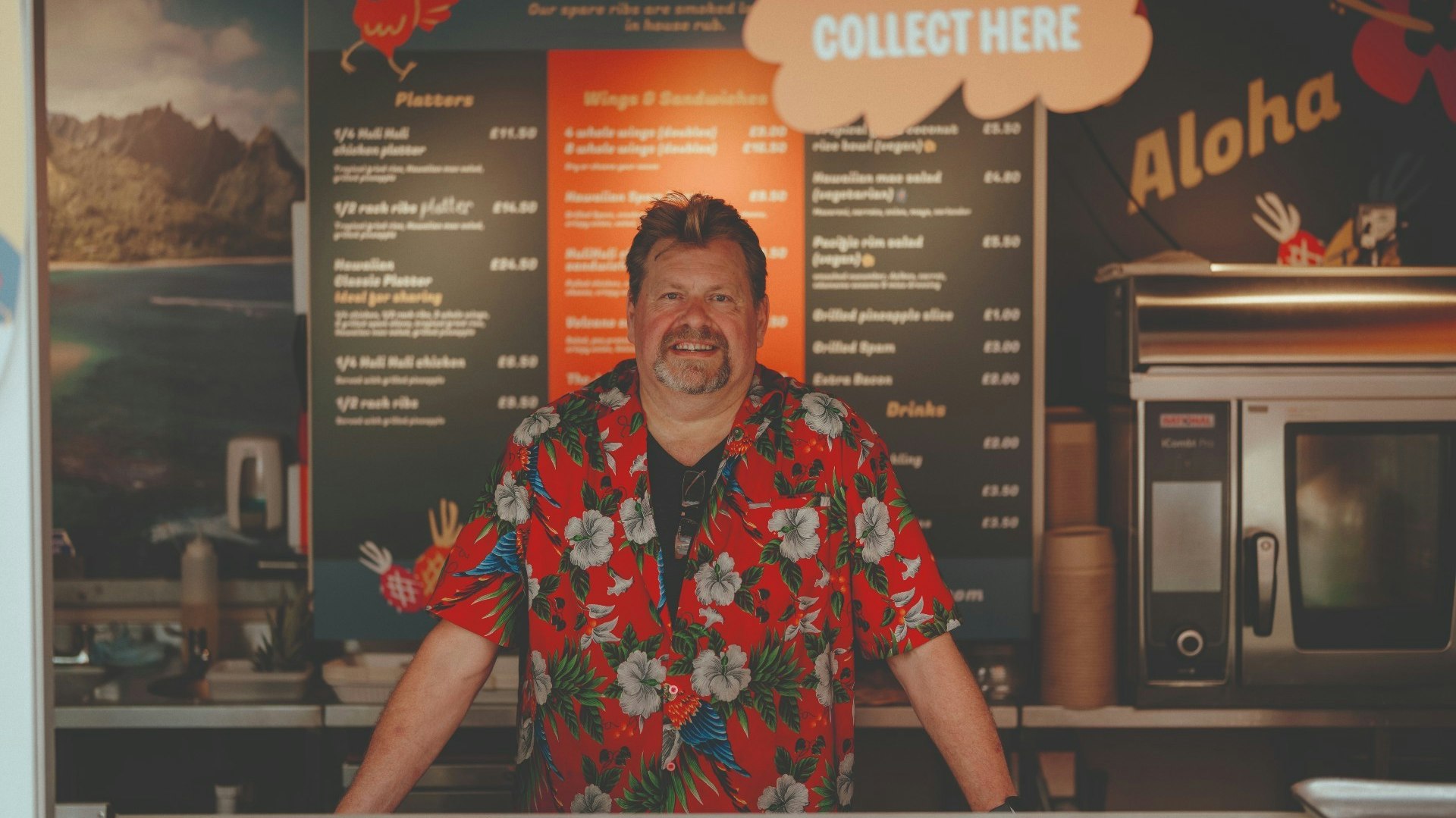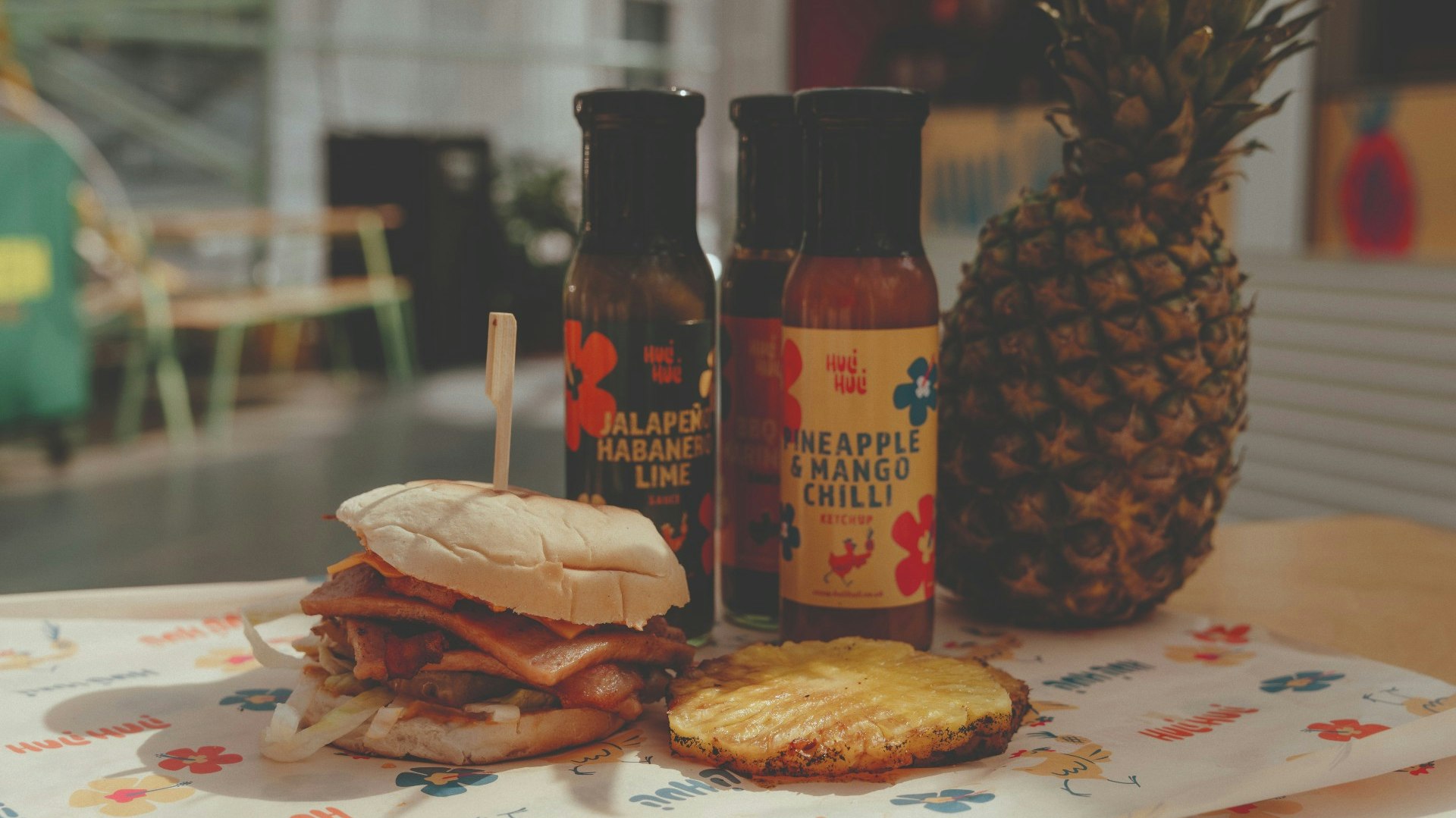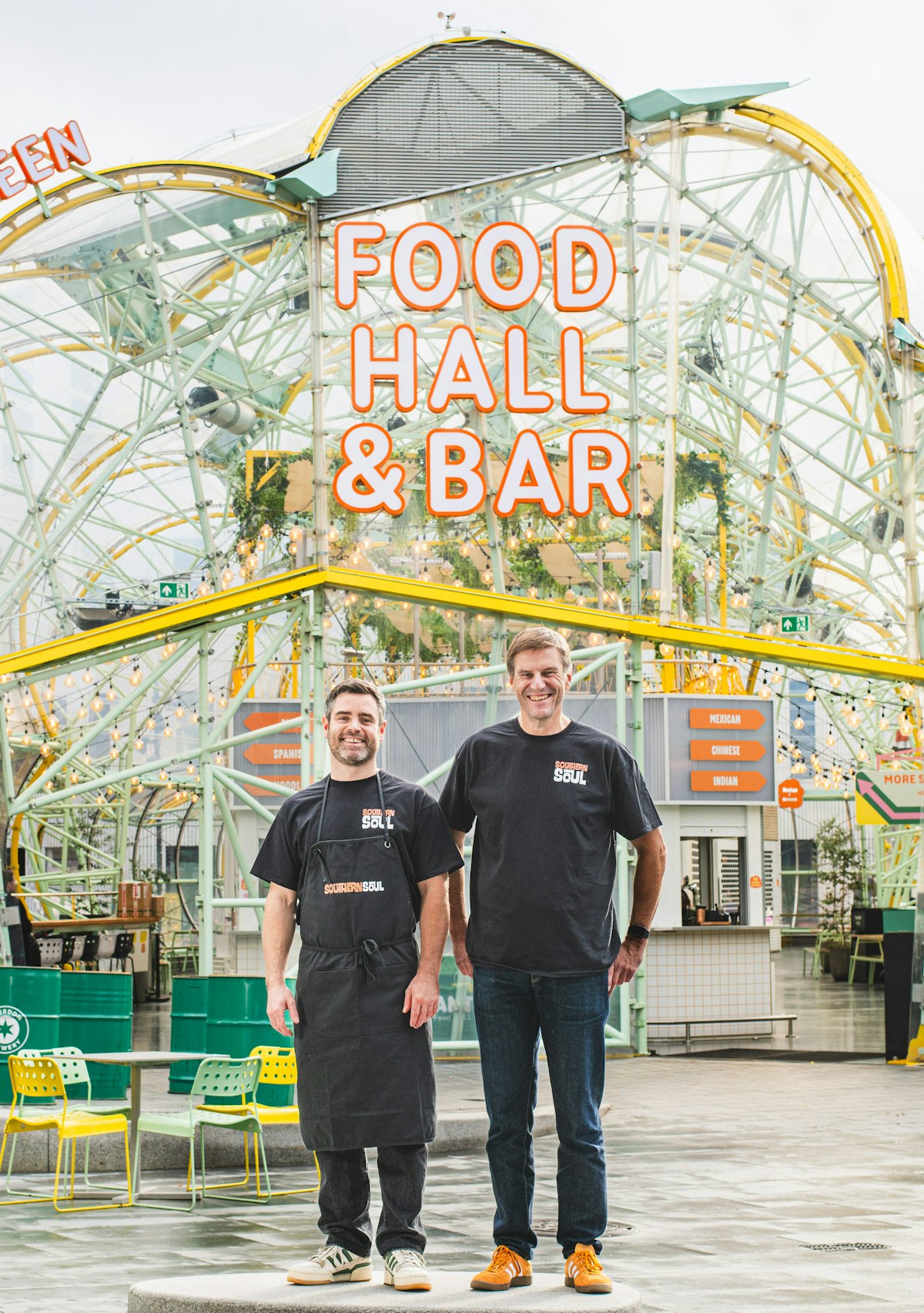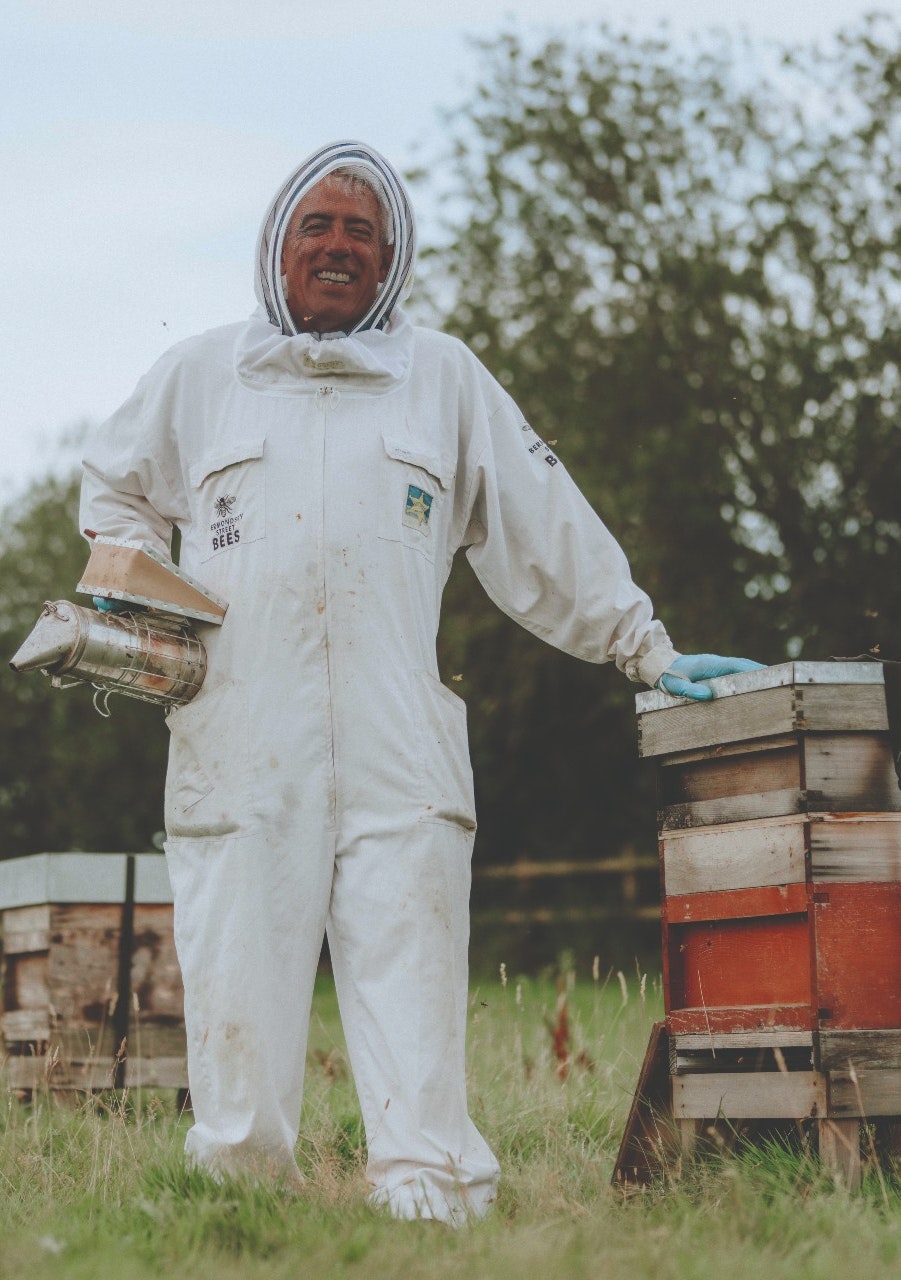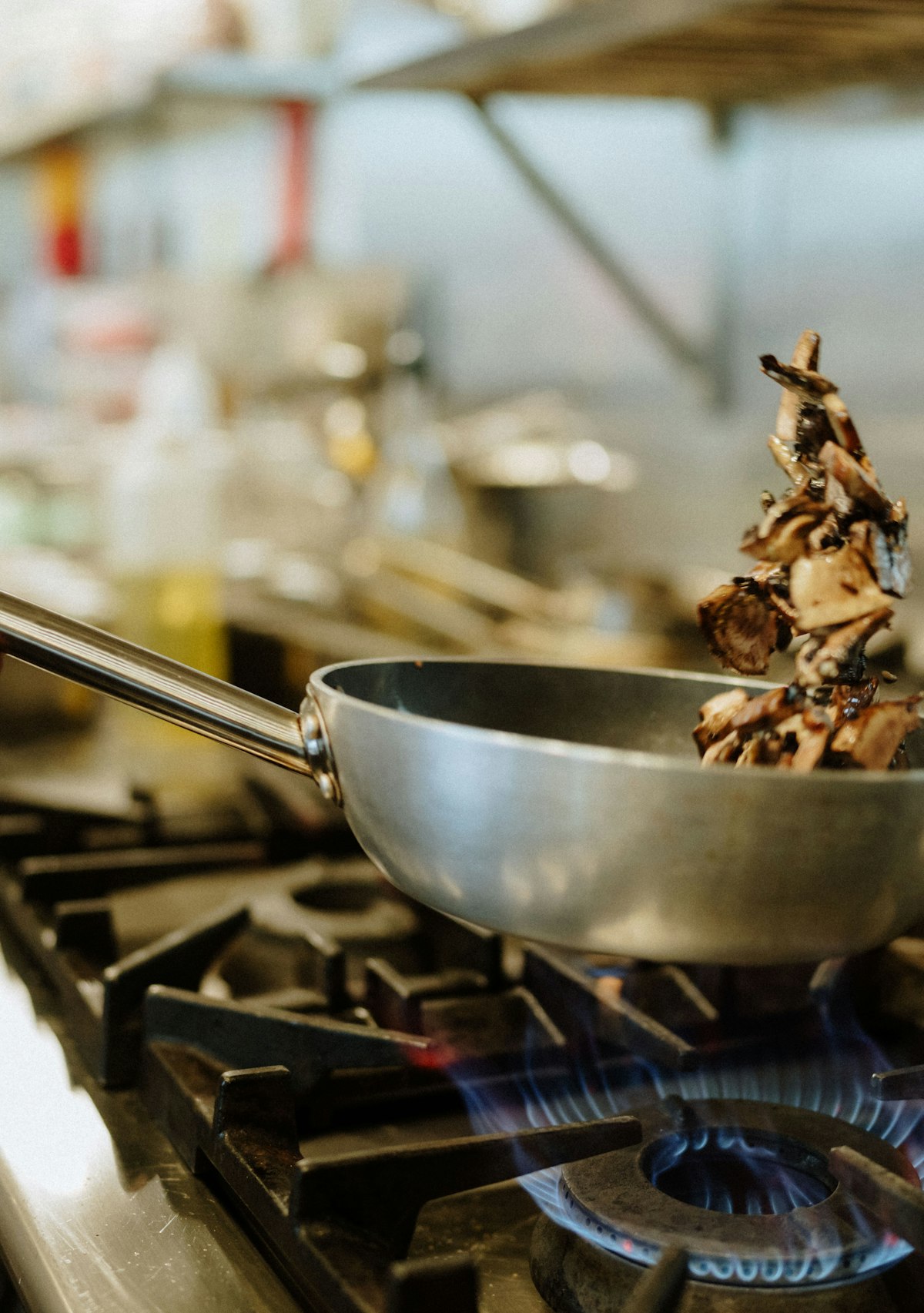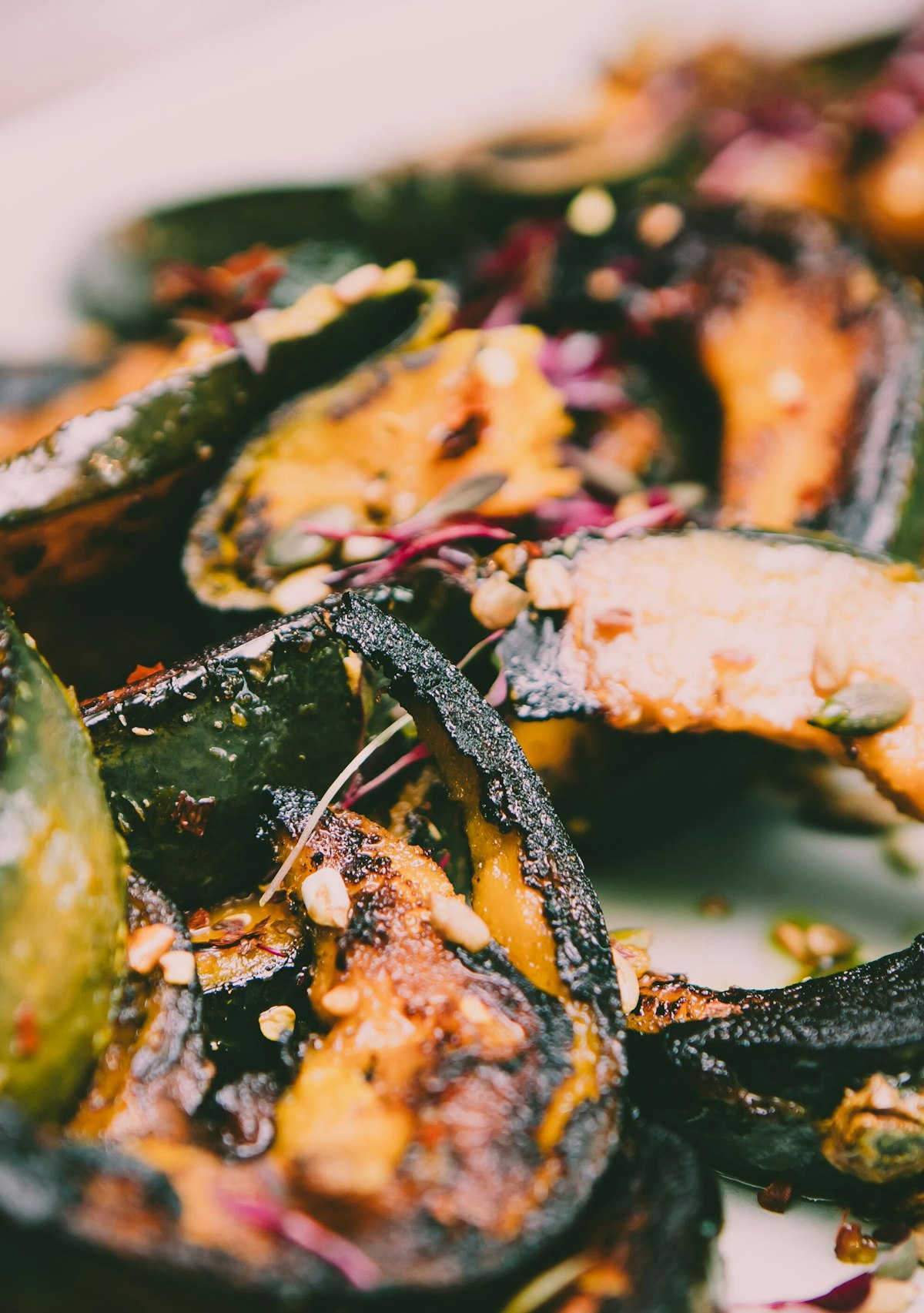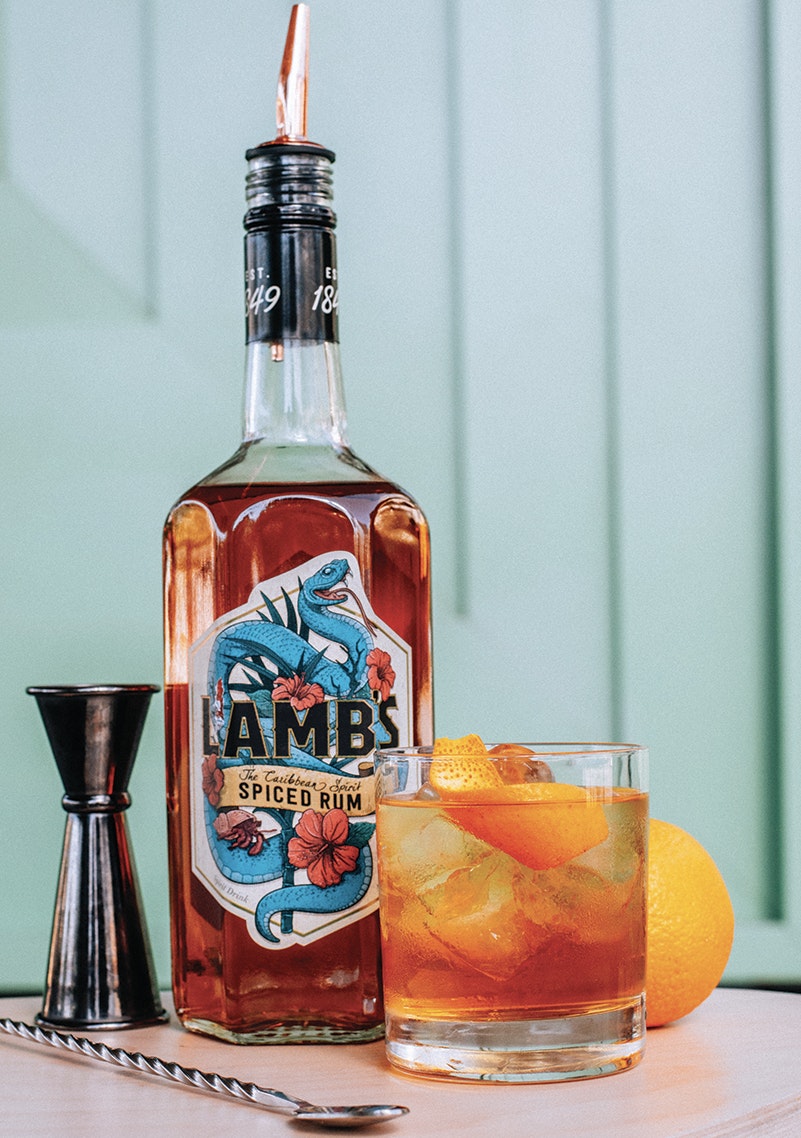
Turn Up The Heat
Tapas Bravas
When people come back for three days in a row to eat your paella for lunch, you know you’re onto a good thing, says Hugo Cordova, chef and founder of Canteen’s Tapas Bravas. He is a veteran of London’s food markets – weekends at Victoria Park and Clapham Common, a weekday lunch spot at the Gherkin – so he’s used to cooking for a big crowd. But the popularity of his stall at Canteen for the Laver Cup 2022 convinced him to take a permanent kiosk.
Hugo started cooking when he was 10 years old, growing up in Tarragona, a small city just along the coast from Barcelona. His mother would leave him a recipe and a list of ingredients before she went to work. He had the day to experiment and learn before she came home to tell him if it was any good or not. He loved it, and all he wanted to do was learn more. So after studying in Spain he moved to London to cut his teeth in hospitality – learning French and Italian cuisine as well as going deep into traditional Spanish flavours. Is his mum still a tough critic? “No, she’s a mum, you know. She’s very proud. She’s the first to like our Instagram posts. She shares them with all her friends.”
Tapas Bravas was born of his disappointment at the quality of Spanish cooking in the capital. “Paella in the food markets in the UK is not as good as we have in Spain,” he says. “We want to keep those traditional flavours, keep it really simple.” By just doing a few things exceptionally well, he can make sure every mouthful is absolutely delicious. “We do three paellas – chicken, seafood and veggie, some patatas bravas with chorizo, and pinchitos, like a Spanish kebab, chicken or lamb with cumin and thyme, it’s a really nice combination.” What’s the secret to a perfect paella? “There are four elements. The first is the stock – you have to absolutely nail it. If you have time, make it from scratch. Next is rice – it has to be paella rice. Then you need to get the balance of everything right: liquid, rice, other ingredients like seafood or chicken. Too much of anything and it ruins the paella. The final element is the pan and the fire: it’s best cooked outdoors on a big pan. For traditional Valencia paella, you have one finger thickness of rice in the pan.” For Tapas Bravas, Hugo breaks this last rule a little bit: if he stuck to it he’d need a pan roughly the size of the O2 to get the right quantity for a busy day. And however much you’re cooking, the trick is to play with the heat to get the delicious crispy bottom - the soccarat – without burning it. And there’s a knack to getting the best result. “You’re boiling the rice for 16-20 minutes, but in the last 30 seconds you need to really turn the heat up.” Of course you could try this at home, but you’re probably better off strolling down to Tapas Bravas and asking for a bit of soccarat with your paella. Best to go prepared: “in Spain, people fight for the soccarat.”
Huli Huli
While Hugo perfects traditional Spanish flavours at Tapas Bravas, Canteen’s other new arrival, Huli Huli, is making Hawaiian street food a mainstream thing. It’s the latest venture from Igor Berkaert, a Belgian chef with a backstory that reads like a movie. Cue a slow fade to Dadizelle, a pilgrim’s village in west Flanders, where a boy stands in front of a pub opposite a church, selling hot dogs. That’s Igor. “The basilica has had three miracles. So you have a tiny village with a huge church and thousands of pilgrims every year.” At age 11 he was selling hot dogs to the holy. When he was 14, the son of the local baker left for national service, and Igor took his place. He left school and never looked back: learning to bake, then training as a patisserie chef, then doing evening classes as a chocolatier, and finally working his way to London and becoming, almost by chance, head pastry chef at Patisserie Valerie in its heyday.
None of which has anything to do with Hawaiian street food – so where’s the connection? The idea came to Igor when he was living in Mexico, running a rooftop bar in Puerto Vallerta with a foodie popup every Friday. “A retired naval officer, one of my regulars, came to me and said ‘Igor, I love your food, you’re a good cook, but you need to make huli huli chicken like we had in Hawaii.” So I did my research, watched a load of YouTube videos, tried a few recipes, built a charcoal grill on the rooftop and tested it out.” It was a big hit. Huli huli sauce is a classic of Hawaiian cuisine: a fusion of Pacific rim flavours with a big dump of American brashness. “You’ve got pineapple in there - local, tropical fruit of Hawaii, mixed with soy, ginger, garlic, sriracha. And then the rest is ketchup, which is the American influence. We marinate the chicken in it and roast over charcoal. It’s the most amazing flavour.”
When Igor moved back to the UK to set up a new restaurant business, Hawaiian street food felt accessible and distinctive – a magic combo. “In 2019 we bought a mobile trailer, a big American-style one, put a massive barbecue grill in it and did the food festivals up and down the UK. I developed the recipes, not just huli huli but a range of sauces we’re going to sell in retail too.” For someone so passionate about Hawaiian flavours, the melting pot of cuisines, it might be surprising that Igor hasn’t ever been there. The pandemic got in the way. “We always planned to go, but the Covid restrictions on US airspace made it impossible. We’ll get there next year, hopefully,” he says. Does that make him worry about the food? Not in the slightest. “Even this morning, two hours ago, a guy walked in, said ‘I’m a native Hawaiian and this gets a ten out of ten.’ He was amazed to find Hawaiian food in London. He even took a picture to send to his mum in Hawaii.”
Huli Huli is not just about chicken and ribs. There’s the headline-grabbing SPAM burger to get stuck into. “Of course, I was skeptical,” says Igor. “I’ve been a proper chef for 30 years, so I was not sure about using processed food.” But Hawaii is the world’s biggest consumer of the tinned pork meat: chowing down seven million cans of SPAM each year. It wouldn’t be a truly Hawaiian menu without it. And with Igor’s Huli Huli treatment, it sounds quite good. “We serve the SPAM burger with our Volcano Mayo, cooked in lots of spices, with some smoked bacon and cheese. It’s a great sandwich. It’s lighter than beef.” The reception has been enthusiastic. “People either ignore it or they love it. It takes them back to their childhood, to good memories.” Tastings with Canteen’s team went well too. “They said ‘fucking hell that’s a nice sandwich. If you don’t put it on the menu, you can’t have the pitch.’”
Images by Kris Humphreys Photography
